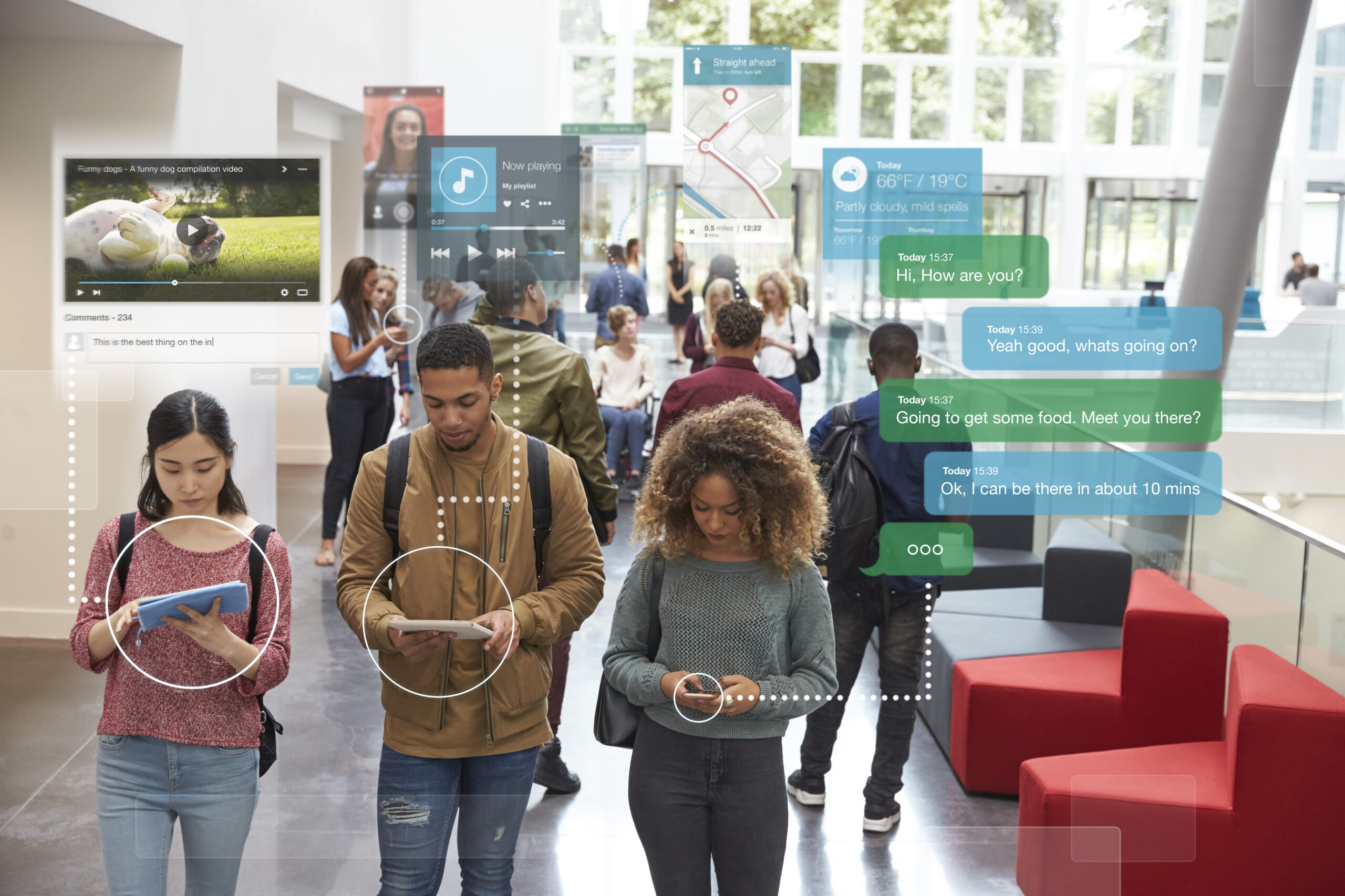
Social Media: Naughty or Nice?
The holidays—which traditionally center around family, friends and goodwill are, for some people, the loneliest time of the year. That layered with the impact of social media can create an overwhelming sense of loneliness for many.
What we call the “holiday blues” can come from a tendency to feel down during a season of fewer sunlight hours and more stormy weather. For those affected, all the holiday parties in the world can’t crack the gloomy shell the dark months bring.
Social media blues, however, can strike at any time of year, and researchers believe a new study sheds light on the subject. While social media platforms may promise a chance to mingle with like-minded others, keep up with our friends and express ourselves, there’s a virtual element with this that is not inherently part of human beings. The virtual element, known as virtuality, is defined by Merriam-Webster as potential existence.
The Study
MDLinx.com reported on a study billed as the first of its kind to establish a causal connection between social media use and decreased well-being.
University of Pennsylvania psychologist Melissa G. Hunt assembled a team to observe the effects of social media use on the moods and dispositions of 143 of the school’s undergraduates over a three-week period.
Hunt’s takeaway from the results? “In general, I would say put your phone down and be with the people in your life.”
Or, more realistically, “Limiting social media use to approximately 30 minutes per day may lead to significant improvement in well-being.”
These may seem like pretty strong words against today’s most popular social platforms, but Hunt firmly believes the data her team compiled deserves a serious look at how we engage in virtual society and its effects on us.
How the Study Worked
To start the study, participants completed a mood and well-being survey and turned over smartphone data that showed their social media habits. Two groups were formed: one whose members would continue their normal social media activity, and a second whose members would spend 10 minutes max per day on each of the three platforms.

Across three weeks, researchers monitored smartphone records and collected student surveys that focused on “anxiety, depression, loneliness, and fear of missing out.” Among the findings: The group with limited social media use reported significantly less depression and loneliness.
Hunt’s explanation for this: “When you’re not busy getting sucked into clickbait social media, you’re actually spending more time on things that are more likely to make you feel better about your life.”
Clock Time May Be the Culprit
The positive effects achieved in Hunt’s study shouldn’t be surprising, even though subjects used just three of the multiple social sites available. Depression and other negative feelings may stem less from the type and number of sites one is on and more from the actual time spent away from reality.
A study covered in our previous blog about the effects screen time has on our children’s brains showed that teens who were heavy social media users were 13 percent more likely than moderate or infrequent users to report depressive symptoms.
In the same article, we pointed to another study that noted a 60 percent increase between 2010 and 2016 in adolescents who experienced at least one major depressive event. It was during this six-year period that social media use really began to skyrocket.
Is It Time to Unplug?
If scrolling through social media is threatening to ruin your holiday spirit, consider cutting back on the virtual part of your life in order to connect with real people in your actual, right-now world.
Not sure where to start? We have some great, offbeat ideas on how to up your literal face time in our Five Ways to Unplug and Reconnect blog, including The Lunch Phone Grab and The Google Deferment Plan. Try them out, and you may find that you’ve got a whole lot to ho-ho-ho about this holiday season—and for the rest of your life.
“Research shows that we vicariously live through the lives of the people we follow on social media. How accurate is that perception though? Instead, increase your well-being by connecting with friends and/or family, take a break from social media platforms and enjoy some alone time without anything scheduled. The latter is the essence of mindfulness.
We could all use some time to reflect and get reenergized.”-Rebecca Sultan, LMFT, LCADC–Manager of EAP Services, Behavioral Healthcare Options, Inc.






















